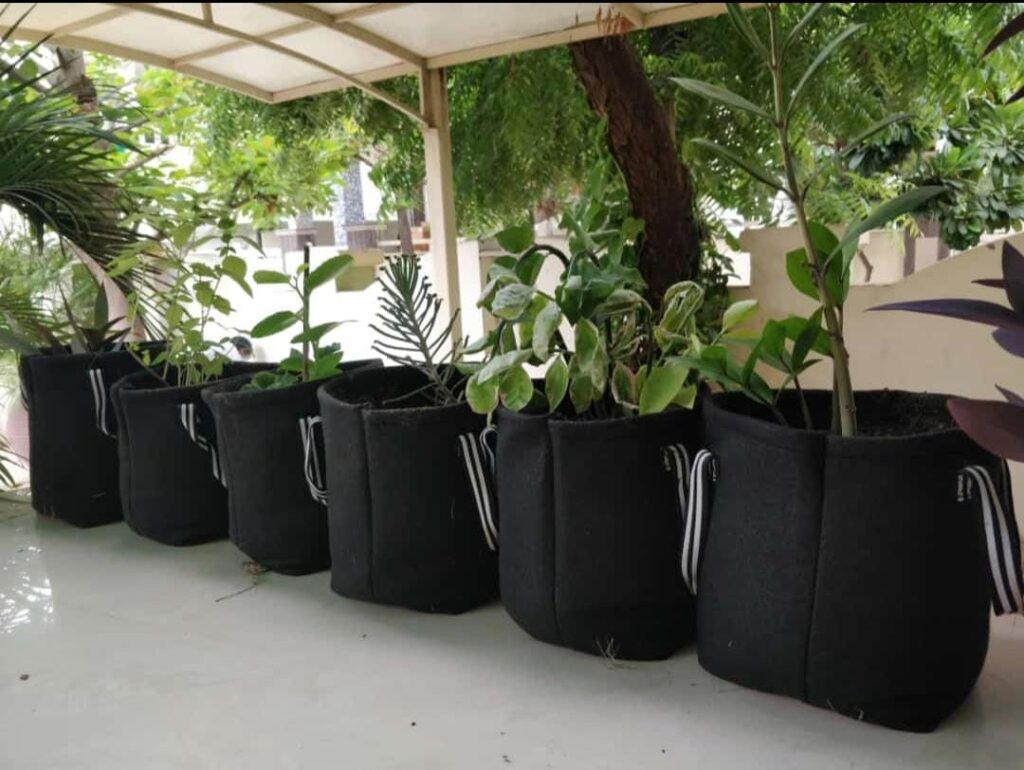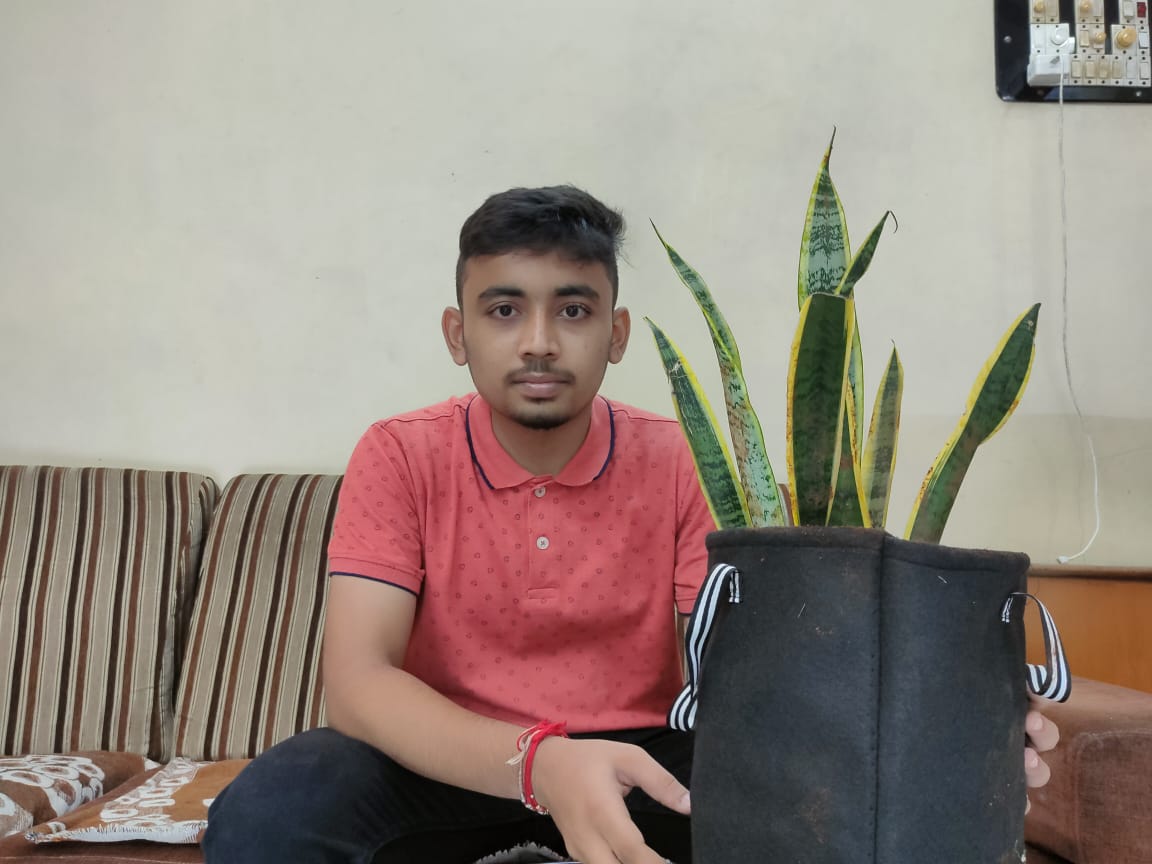Intending to reduce waste by creating something productive out of it, Jinay Gada, a 17-year-old student from K J Somaiya College of Science and Commerce, Mumbai, started an initiative with a green point of view. “Planteria,” a garden centre, manufactures low-cost grow bags from non-woven fabric, which are much lighter in weight. After the first lockdown was announced last year, he got into home gardening and grew several different flowering plants, including plants from cuttings like money plants, roses, and even fruits and vegetables.
In a conversation with The Earthview team, he talked about the inspiration behind ‘Planteria’ and how it all came together.
Most urban home gardeners use various household items, like refrigerators and discarded drums, to grow the plants. The mantra employed by them is “reuse and recycle”. However, these items hold the potential to add weight to the structure and occupy a lot of space, too. While just casually strolling around, the teen student saw plastic bottles lying here and there, and got the idea of creating something useful out of them. He created grow bags, made from non-woven fabric. After finding a good and eco-conscious solution to the issue, he finally launched Planteria in July this year and started marketing and started marketing his grow bags all across the country.
According to Jinay, these grow bags are durable and will encourage home gardening. “They make the grow bags from non-woven fabric extracted from plastic bottles and covers. They are sturdy, regulate water drainage, and promote air pruning. I have sold 200 bags through social media, to date.”, he added, while explaining his bags. The idea hit him more when he wanted to buy planters and found all of them to comprise plastic or very expensive. Hence, lining up with the urban gardener’s mantra of “reuse and recycle”, he started making his own grow bags.

After doing his research, he found out that grow bags comprise fabric and went ahead with collecting a few from the local municipalities trial. “I somehow made fabric out of these bottles, and then I found out that these fabrics would be useful for gardening too. So I came up with the idea that how about we stitch these fabrics into grow bags”, Jinay told.
The first couple of pieces had issues like water drainage or not promoting enough root growth, so he decided on stitching his own. He sourced non-woven fabric from suppliers in Surat, in April this year. These fabrics were the ones discarded and accumulated plastic in the landfills. “I had to test how much weight the material could hold, how porous it was and how sturdy it was before finalising a supplier”, he told. Tailors near his home stitched all over. After getting satisfied with a supplier, Jinay gained fabric material in bulk. After a good sum of planning for May and June, and a lot of trials and errors, the final grow bags that came out could drain water from the bottom and the sides and circulate air from all sides because of their porous texture, which is good for fast root growth.
The bottles used as raw materials to make the fabric are polythene terephthalate (PET) bottles, and 12 to 13 bottles are used to manufacture the smallest 8×6 inch growing bag. He makes four different sizes of bags and puts them at an economic cost of between Rs 50 for the smallest one and Rs 120 for the largest. Jinay received 200 hundred orders from all across the country, just within two months of launching Planteria. He started targeting his customers through Instagram, and as the demand increased, he listed his products on Amazon and Flipkart.
With ‘Planteria’ being Jinay’s first extensive project around the environment, he has nowhere to slow down. The impact he is making on the environment with this project can be assumed from the fact that he processed 700-800 kgs of plastic bottles within 3 months. Talking about what’s ahead for him, he told The Earthview team how he and his people are looking forward and planning to design more such products that can take the waste and turn it into something useful. Living in the Bhiwandi area of Mumbai, which has a lot of textile industries, he wants to use the waste from those industries for making his next eco-friendly product, although the plan is still in the experimentation stage.
Tazeen Ansari

